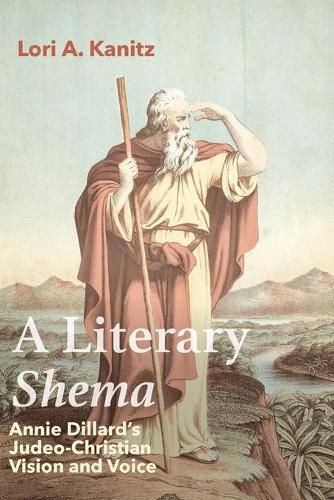Readings Newsletter
Become a Readings Member to make your shopping experience even easier.
Sign in or sign up for free!
You’re not far away from qualifying for FREE standard shipping within Australia
You’ve qualified for FREE standard shipping within Australia
The cart is loading…






This title is printed to order. This book may have been self-published. If so, we cannot guarantee the quality of the content. In the main most books will have gone through the editing process however some may not. We therefore suggest that you be aware of this before ordering this book. If in doubt check either the author or publisher’s details as we are unable to accept any returns unless they are faulty. Please contact us if you have any questions.
For the duration of her writing career, Pulitzer Prize-winning author Annie Dillard has unflinchingly asked and kept on asking enormous and difficult questions: What is the relation of Creator to creation? Why is there evil and unjust suffering? How do we make meaning of our experiences? Who is responsible for redeeming the world’s brokenness? Moreover, she has done so in every genre within the impressive range of her canon: her poetry, literary nonfiction, novels, autobiography, literary criticism, and memoirs. Two enduring influences have shaped Dillard’s cosmos-spanning questions and their metanarratives–Christianity and Jewish mysticism, particularly Hasidism and Isaac Luria’s Kabbalism. Though much scholarly attention has been paid to the influence of Christian mysticism in Dillard’s work, none has yet explored the role of her lifelong interest in Jewish mystical traditions. This book seeks to fill that scholarly gap and demonstrate how Dillard’s theological vision and voice both reflect and enact central features of Hasidic and Kabbalistic thought, resulting in what could be called Dillard’s literary shema.
$9.00 standard shipping within Australia
FREE standard shipping within Australia for orders over $100.00
Express & International shipping calculated at checkout
This title is printed to order. This book may have been self-published. If so, we cannot guarantee the quality of the content. In the main most books will have gone through the editing process however some may not. We therefore suggest that you be aware of this before ordering this book. If in doubt check either the author or publisher’s details as we are unable to accept any returns unless they are faulty. Please contact us if you have any questions.
For the duration of her writing career, Pulitzer Prize-winning author Annie Dillard has unflinchingly asked and kept on asking enormous and difficult questions: What is the relation of Creator to creation? Why is there evil and unjust suffering? How do we make meaning of our experiences? Who is responsible for redeeming the world’s brokenness? Moreover, she has done so in every genre within the impressive range of her canon: her poetry, literary nonfiction, novels, autobiography, literary criticism, and memoirs. Two enduring influences have shaped Dillard’s cosmos-spanning questions and their metanarratives–Christianity and Jewish mysticism, particularly Hasidism and Isaac Luria’s Kabbalism. Though much scholarly attention has been paid to the influence of Christian mysticism in Dillard’s work, none has yet explored the role of her lifelong interest in Jewish mystical traditions. This book seeks to fill that scholarly gap and demonstrate how Dillard’s theological vision and voice both reflect and enact central features of Hasidic and Kabbalistic thought, resulting in what could be called Dillard’s literary shema.